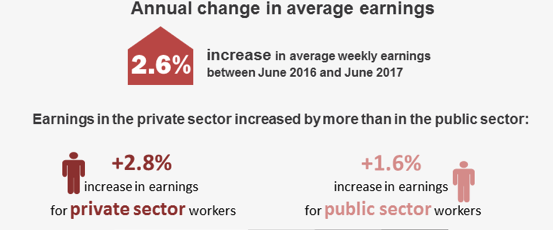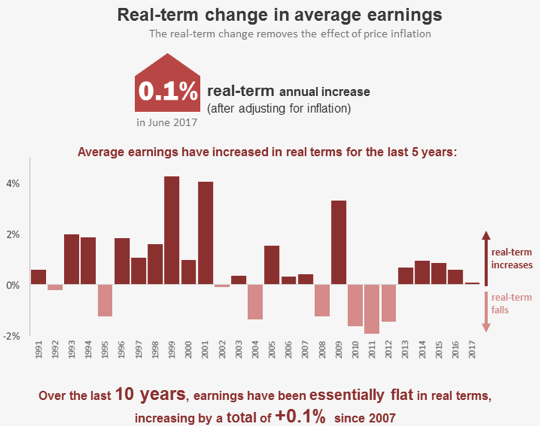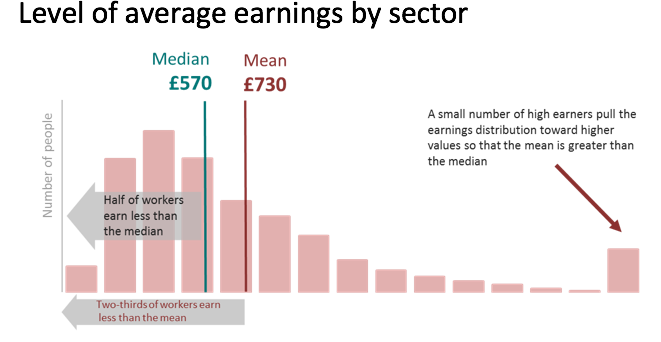

Average pay increases over the past year are just about keeping pace with price increases - but only just.
The latest average earnings index shows that over the past twelve months workers' pay has gone up by 0.1% in real terms.
But the findings are deceptive. Whilst average earnings in the private sector have gone up by 0.3%, people working in the public sector have seen their earnings drop by 0.9%.
The average working wage is now £730 a week. Those working in the finance industry on average earn most - around £1,000 a week. Whilst those in hotels, restaurants and bars the least - £400 a week.
The Index of Average Earnings measures changes in average earnings that have been paid to workers in Jersey, those include salaries and overtime payments but exclude bonuses, insurance contributions, holiday pay and benefits in kind.
The latest figures released by the Statistics Unit show that the average weekly earnings were 2.6% higher than in June 2016, an annual increase 0.5 percentage points greater than that of the previous year. The results are used by the Social Security to calculate old-age pensions and benefits for income support.
Earnings in the private sector, which were calculated on the basis of a sample of 500 companies, have risen by 2.8%, which is the largest increase seen since 2009. The hospitality and agriculture industries were the sectors who experienced the biggest increases of 3.5% and 3.0% driven by the rise in the minimum wage implemented in April. The construction sector also saw a 3.2% rise but that was lower than the 4.1% one recorded in 2016. The finance sector also rose by 2.9%, 0.4 percentage points more than 2016.
 Pictured: Earnings in the private sector increased by more than in the public sector.
Pictured: Earnings in the private sector increased by more than in the public sector.
In the public sector, which is wholly surveyed as part of the index, earnings saw an increase of 1.6% which was due to the implementation of scheduled pay awards. This increase is in line with the average of 1.5% over the last five years.
 Pictured: Average earnings have been essentially flat in real terms since 2001.
Pictured: Average earnings have been essentially flat in real terms since 2001.
When compared with the retail price inflation, which sat at 2.5% in the last quarter, earnings increased by 0.1%. This is the fifth consecutive year that earnings increased in real terms but they just about keep up with inflation, meaning that people are not necessarily better off.
 Pictured: Average earnings range from £400 in hotels, restaurants and bars to £1,000 in financial services per week.
Pictured: Average earnings range from £400 in hotels, restaurants and bars to £1,000 in financial services per week.
Commenting on the results, a States spokesperson said: “The results show that, in real terms, we are meeting our stated objective of reducing public sector staff costs while continuing to reward expertise. More broadly, earnings in the private sector have remained above inflation for the fifth year in a row.”
Comments
Comments on this story express the views of the commentator only, not Bailiwick Publishing. We are unable to guarantee the accuracy of any of those comments.